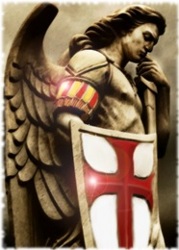0



Why not start with wikipedia
http://en.wikipedia.org/wiki/Proto-I...pean_phonology
Because PIE was not written, linguists must rely on the evidence of its earliest attested descendants, such as Hittite, Sanskrit, Ancient Greek, and Latin in order to reconstruct its phonology.
The reconstruction of abstract units of PIE phonological systems (i.e. segments, or phonemes in traditional phonology) is much less controversial than their phonetical interpretation. This especially pertains to the phonetic interpretation of PIE vowels, laryngeals and voiced stops
http://en.wikipedia.org/wiki/Centum-Satem_isogloss
The centum group includes Italic, Celtic, Germanic, Hellenic and Tocharian. This group merged PIE dorso-palatals and dorso-velars but retain the labio-velars as a distinct set.[2] Tocharian largely reflects a situation where all three PIE dorsal series as well as all voicing/aspiration distinctions (originally constituting nine separate consonants) have merged into a single phoneme /k/. This has led some writers to suggest that Tocharian does not fit the Centum-Satem model.[3] However, some PIE labiovelars are in fact represented by a labiovelar-like element or by a non-original sequence /ku/. Along with other evidence, this suggests that labiovelars were distinct in Proto-Tocharian and only later merged with velars (as happened independently in Old Irish and to some extent in some other languages), making Tocharian a clearly Centum language.[4]
The satem languages (which have the sibilant where the centum equivalents have the velar) include Baltic, Slavic (or Slavonian), Armenian and Indo-Iranian. This group lose the labial element of the PIE labiovelars and thus merge them with the dorso-velars while the dorso-palatals remain distinct.[5] Balto-Slavic is largely satem but evidences centum development in some words, suggesting that "Satemization" was incomplete. There is residual evidence of various sorts in satem languages of a former distinction between velar and labiovelar consonants, indicating the earlier centum state.[citation needed]













| Thumbs Up |
| Received: 12,173 Given: 7,962 |

Other examples of spoken PIE:
[YOUTUBE]gkhkVbs84[/YOUTUBE]
[YOUTUBE]SU5qI1MCzss[/YOUTUBE]














| Thumbs Up |
| Received: 1,687 Given: 1,192 |

PIE for Sky Father: Dyeus Pater
Greek: Zeu Pater
Old Latin: Diouis
Oscan: Diuvei
Germanic: Teiwaz
Hittite: Siu
Luwian: Tiwaz
Palaic: Tiya
Baltic: Deiwas
Sanskrit: Dyaus Pitta
PIE for God of Thunder-Mountains: Pherkhouno
Sanskrit: Parvata
Hittite: Pirwa
Baltic: Perkunas
Slavic: Perunu
In these reconstructions, the Satem languages preserve the names of the proto-gods better.














| Thumbs Up |
| Received: 1,687 Given: 1,192 |

It is not certain where and among who the wheel was first invented. Regardless there are enough cognates among IE languages to asert the speakers of PIE as having knowledge of it:
Wheel from PIE kwékwlo
Greek: kuklos
Old English: hweogul, hweowul or hwēol
Old Indic cakra
Avestan: caxrem
Both Kentum and Satem IE worlds are represented here. I find it interesting though how English (representing Germanic here) drops the harder consonant sounds and morphs into what we know it as today.
Chariot in Tocharian
Tocharian A: kukäl
Tocharian B: kokale
Notice the linguistic similarity to 'wheel' demonstrating this semantic leap as resulting from Tocharian speaking chariot makers knowledge that such vehicle's movement is predicated on circular, rotating devices - 'wheel'.














| Thumbs Up |
| Received: 1,687 Given: 1,192 |

Honestly, you brought up a new theoretical linguistic grouping I wasn't aware of. I'm not totally sure though how Dutch and Frisian relate to Old English term for 'wheel'. Frisian of course is most closest Germanic relative to English. So theoretically the ancient Germanic tribes that colonized Frisia but also England would be close ethno-linguistically speaking.















| Thumbs Up |
| Received: 1,296 Given: 3,160 |














| Thumbs Up |
| Received: 1,687 Given: 1,192 |

But does that mean 'king' precisely? I thought most Germanic languages used derivatives from Proto-Germanic 'kuninguz' which is cognate to 'clan' and essentially meant clan leader among the early Germanic tribes. I've heard of 'reich' too and how that preserved PIE for 'king' in Germanic but some linguists claim it a borrowing from Latin 'rex' I believe.
















| Thumbs Up |
| Received: 2,755 Given: 1,407 |

After all this talking about Indo-European, he wonders if the name of the site Dnghu is an acronym?For Zeus' sake, it is obviously related to the Indo-European word dnghwa "language", from which both tongue and lingua derive.
< La Catalogne peut se passer de l'univers entier, et ses voisins ne peuvent se passer d'elle. > Voltaire















| Thumbs Up |
| Received: 1,296 Given: 3,160 |

Not exaclty, King is 'cyning' in Old English. 'ric' is a related term though, it's the king's domain and appears similar to those words:
I think it's ultimately derived from Celtic. I read something about that somewhere, I'll have to look it up.From Middle English -ricke (also -riche), from Old English -rīċe (“-ric”), from rīċe (“realm, domain, jurisdiction”), from Proto-Germanic *rīkijan (“realm, power”). Cognate with Dutch -rijk, German -reich.
For German 'Reich':
It is cognate with Scandinavian rike/rige, Dutch: rijk, Sanskrit: raj and English: -ric, as found in bishopric.
There are currently 1 users browsing this thread. (0 members and 1 guests)
 Heathenry
Heathenry
Bookmarks